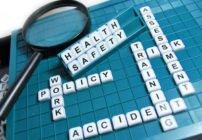
Some people become more easily addicted to things than others. This is informally known as having an ‘addictive personality’. Learning to manage such a personality is important – while it can be turned into a positive trait, it can also be hugely negative if you get addicted to the wrong things. Below are some of the signs that you may have an addictive personality and a few tips on how you can stop it from becoming unhealthy.
Sings of an addictive personality
You may have an addictive personality if:
- You have trouble controlling your impulses. You often take actions without thinking about the consequences. This could include making impulse purchases without worrying whether you can still afford bills or drinking heavily despite having work the next day.
- You quickly develop obsessive thoughts over things you become passionate about. Until you’re able to indulge in an activity or substance, it may constantly be on your mind. For example, you might constantly think about social media or eating food.
- You are happy to indulge in activities or substances alone. You are not just a ‘social smoker’ or a ‘social drinker’, and look to these as comfort boosters/stress relievers
- You neglect responsibilities and commitments because you become distracted or obsessed by substances or activities. You find it hard to prioritise the right things. For example, you might spend all night playing video games when you have to be up early the next day, or you may find yourself gambling away money that was supposed to be spent on groceries.
Managing your addictive personality
It is important to take steps to control your addictive tendencies. This can prevent addictions from being harmful. Below are some of the steps you could consider taking:
Get professional support
When it comes to overcoming existing addictions, you may find it hard to give up on your own. Seeking out professional support could help you to beat any current unhealthy addictions by teaching coping mechanisms. This could include going to drug rehab, joining a gambling support group or seeing a therapist about your alcohol addiction.
Embrace healthy obsessions
Any addiction can become unhealthy. However, there are certain addictions that are more likely to have positive benefits providing you don’t take them too far. This includes things like exercise, reading, listening to music or a craft hobby. Replace unhealthy addictions with these types of addictions.
Establish clear boundaries early
You can help control an addiction by setting boundaries early. When you find yourself becoming passionate about something new, start immediately capping how much time or money you spend on it. This could include sticking to a strict gaming schedule with alarms to tell you when to stop, or setting aside a strict budget to spend on a hobby like jewellery making or vinyl collection.
Create a support system
It’s important to have people around you who can talk you out of temptations and stop you from indulging in unhealthy addictions. Don’t just surround yourself with fellow addicts. If you live alone, make sure you’re regularly scheduling time to spend with family and friends – spending too much time alone could cause you to engage in addictions by yourself with no-one to tell you ‘no’.
Related Posts
- Health & Fitness
Food FactsDiet & Nutrition Mind & Body Exercise & Fitness
- Quick tips to manage your finances and not overspend
We can't predict the future, which we despise. It's difficult to know where the road…
- How To Manage Your Finances Using Credit Cards
Image Credit Credit cards have something of a negative reputation when it comes to personal…


















